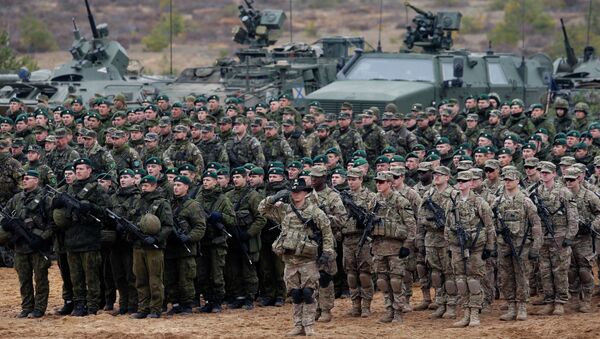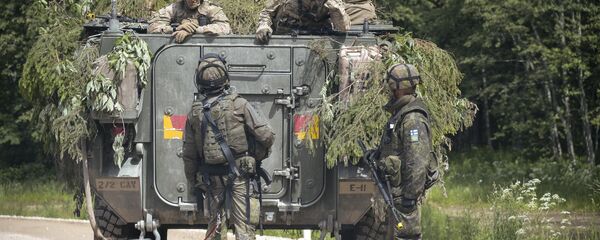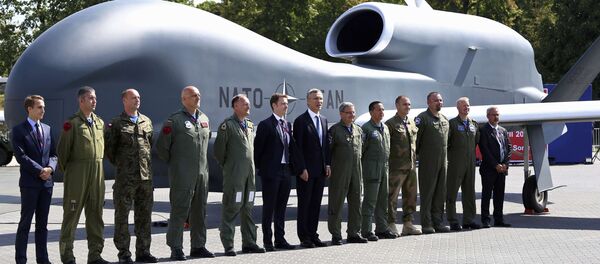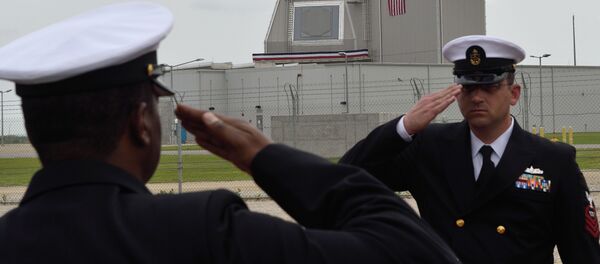"We have decided to enhance our military presence in the eastern part of the Alliance with four battalions here in Poland, as well as [in] Estonia, Latvia and Lithuania on a rotational basis," Stoltenberg said.
Canada will deploy soldiers in Latvia, Germany will lead the battalion in Lithuania, the United Kingdom in Estonia, while the United States will serve as a framework nation in Poland, the NATO chief said.
Stoltenberg said that there is no timeline for NATO's expansion in eastern Europe and will last as long as needed.
"Is is an open-ended commitment and it will last as long as necessary. So we haven't any date, where we have said that this will end."
He also said that NATO agreed on multinational troop presence under the Romanian leadership in Romania.
Stoltenberg also said that NATO will inform Russia on the decisions it reaches at Warsaw summit during next week's Russia-NATO Council.
He added that NATO aims to conduct a "constuctive" dialogue with Russia instead of isolating it. The NATO chief welcomed Russia's intention to address air saferty in the Baltic region.
"We do not want a new Cold War, we do not want a new arms race and we do not seek new confrontation. As we strengthen our deterrence and defense, we continue to seek constructive dialogue with Russia. Russia is our biggest neighbor… Russia cannot and should not be isolated."
NATO missile defense systems in Spain, Turkey and Romania are now "able to work under NATO command and control," he said.
"Today we have decided to declare initial operational capability of the NATO ballistic missile defense system. This means that the US ships based in Spain, the radar in Turkey and the interceptor site in Romania are now able to work together under NATO command and NATO control."
Russia opposes and has repeatedly expressed concern over the creation of the ballistic missile defense system in Europe, which was approved in 2010 during a NATO summit in Lisbon.
US officials have unsuccessfully sought to persuade Russia that the NATO missile shield is not aimed at Russia, and that the interceptor rockets being deployed would not be effective in countering the Russian missile-based nuclear deterrent.
NATO member states recignize cyberspace as a new operational domain, adding to land, air and sea, Stoltenberg said.
"Today we also recognized cyberspace as a new operational domain, joining land, air and sea. This means better protection of our networks and our missions and operations with more focus on cyber training and cyber planning."
According to the secretary general, the allies have pledged to strengthen their own cyber defenses and "share more information and best practices."





